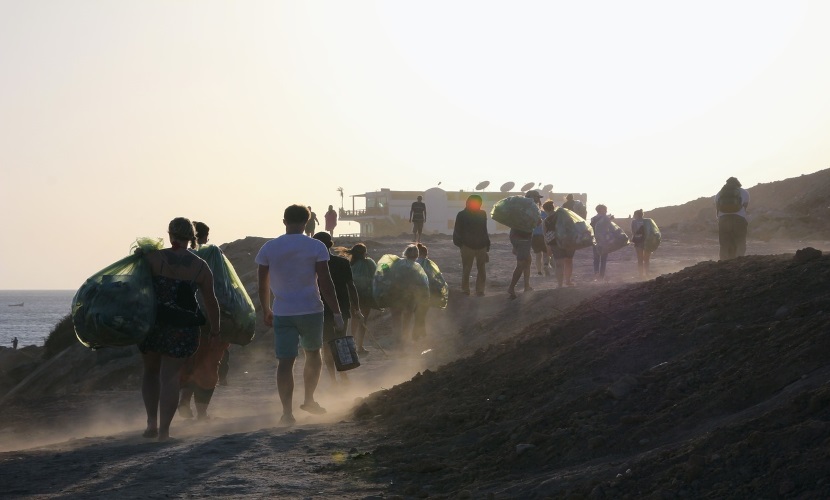 Darwin is fortunate enough to be surrounded by some of the most beautiful and untouched coastline in the world. It has many unique and marine species such as the Snubnose dolphin that only reside in the Top End.
Darwin is fortunate enough to be surrounded by some of the most beautiful and untouched coastline in the world. It has many unique and marine species such as the Snubnose dolphin that only reside in the Top End.
Unfortunately though, with modern day pressures of an expanding population, and tidal influences from abroad, our beaches are littered with debris (rubbish) of all sorts. This debris is not only unsightly but it also has a huge impact on our marine life. Micro-plastics, and smaller pieces or coloured hard and soft plastics are of particular concern during our clean-ups. Fish and seabirds consume them, mistaking them for food and become poisoned.

During this project the team will learn about the effects marine debris has on the environment and the predominant origins of this debris, before heading out to some local beaches (Lee Point, East Point, Casuarina a Beach, Mindil Beach and Buffalo Creek) where they will survey targeted sections of beach.
Did you know:
- Every piece of plastic made still exists in our environment today?
- The average plastic water bottle takes 450 years to break down?
Selected beach locations are all known turtle nesting sites, important to the Top End and survival of these iconic marine species. After collection of debris, the team will catalogue and sort the debris so the data can be added to a larger national database – Tangaroa Blue.
Want more info?
Please contact the Darwin office
P: 08 8981 3206
E:














